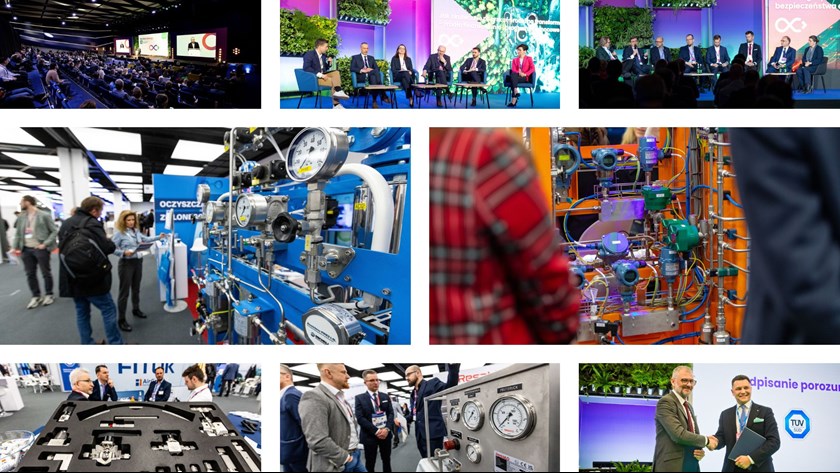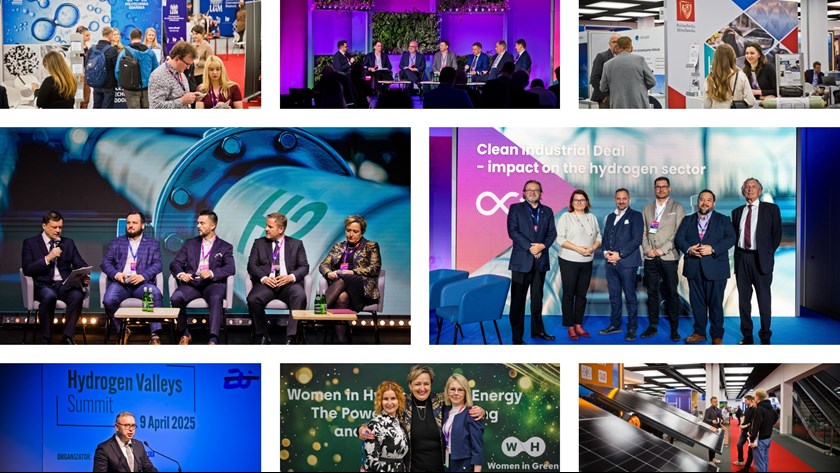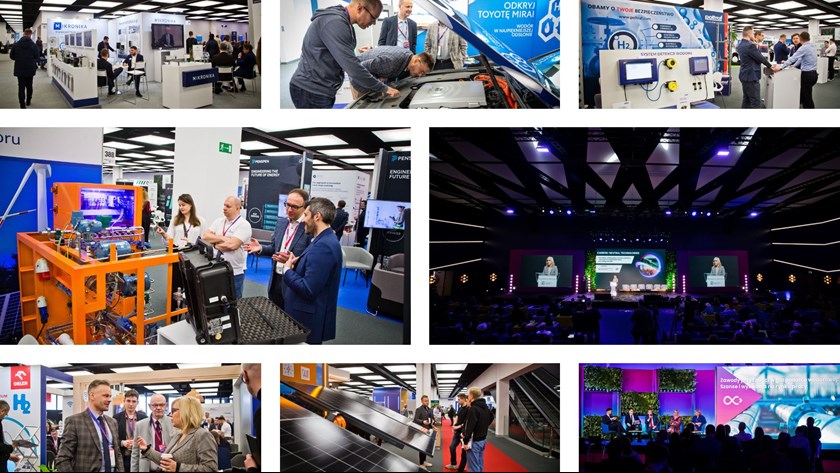Energy transformation in practice - lessons from NetZero Energy and H2POLAND
More than 4 500 participants, 150 exhibitors from 11 countries, 150 speakers and more than 80 debates - that was the 4th edition of H2POLAND and NetZero Energy in figures. But the most important events took place on the stages, in the corridors and on discussion panels - where the future of Polish and European energy was discussed.
NetZero: energy without compromise
‘We live today in a time when climate responsibility is no longer just an option, but is becoming a necessity of life,’ Tomasz Kobierski, CEO of the MTP Group, opened the event with these words. In his view, energy transformation cannot be just a slogan - it must be a plan in which technology, business and society work together.
The NetZero Energy conference became a space where innovation met real strategies. The exhibition was rich in the latest developments in RES, energy storage, local energy networks or low-carbon technologies, including, of course, hydrogen.
Wielkopolska - a model route towards hydrogen
A strong voice in the debate belonged to the region's host, Wielkopolska. Jacek Boguslawski, member of the Wielkopolska Voivodeship Board, recalled that the decision to invest in hydrogen technologies in the region was already taken in 2018.
‘Hydrogen can be used in the transport sector, as fuel for buses, hydrogen fuel-cell cars, as well as in the chemical sector, such as for the production of fertilisers,’ Boguslawski pointed out.
Wielkopolska was one of the first regions to bet on green hydrogen, developing the Hydrogen Platform and specific infrastructure projects.
Geothermal - a quiet revolution
During one of the key panel discussions, experts pointed to the potential of geothermal energy. As Philip Michael Gosney of Innargi noted:
‘The Earth's crust contains 50,000 times more energy than all known oil and gas reserves combined. This is a huge potential that only needs to be partially unlocked.’
This topic was also elaborated on by Krzysztof Zamasz, Vice President of Veolia:
‘Geothermal is one of the cleanest energy sources. The medium - water - returns to the source after use. Zero emissions, high efficiency. And most importantly - stability independent of the weather.’
Poznan is one of the few large cities in Poland to use geothermal energy, with the ambition of achieving a 20% share of this source in the mix by 2029.

Hydrogen is already working - ORLEN and concrete implementations
Grzegorz Jóźwiak of ORLEN argued that hydrogen is no longer the fuel of the future - but of the present:
‘At the ORLEN station in Poznań, we refuel 25 hydrogen buses every day. Hydrogen is safe, efficient and already used in industry.’
ORLEN plans to introduce 700 MW of low-carbon hydrogen generation capacity by 2035. Among its projects, he mentioned HySPARK - a decarbonisation demonstrator at Chopin Airport, funded by EU funds.
Hydrogen valleys - laboratories of the future
In turn, Wojciech Lach, hydrogen project coordinator at ORLEN, spoke about the concept of hydrogen valleys:
‘A hydrogen valley is a region where different entities join forces to develop and test hydrogen-related technologies. It's not an idea - it's already working projects.’
Mazovia and Amber Hydrogen Valley are examples where, in addition to research and demonstrators, refuelling stations, vehicles and full hydrogen ecosystems are emerging.
Experts: the future is a mix of technologies
Paweł Piotrowicz of TÜV SÜD Polska noted that there is no single solution:
‘Just two years ago I would have bet everything on hydrogen. Today I know that this is just one element. The future is a hybrid - from RES, to hydrogen, to nuclear and biogas.’
He also highlighted the importance of seasonal energy storage and biomethane as undervalued components of the system.

Research and development as a transmission belt
Prof. Jakub Kupecki from the Institute of Energy - National Research Institute drew attention to the role of institutes:
‘Research institutes are the link between industry, science and administration. They are the ones who assess which directions of development make sense in the long term.’
He also stressed the importance of continuity of staff, organisational knowledge and the real implementation of technologies, not just their design.
Local energy and community education - pillars of transformation
Miłosz Motyka, Deputy Climate Minister, stressed the importance of decentralisation and education:
‘It has to pay off for people. And it often already pays off - it's just that awareness is lacking.’
Renewables and nuclear power must go hand in hand - not only for technological reasons, but also for social and economic reasons.
Transformation is not a goal - it is a process
As Piotrowicz concluded:
‘Transformation is not over. It is a process that will continue because the world is changing. And that's a good thing.’
The NetZero Energy & H2POLAND 2025 event showed that green transformation in Poland is no longer a vision, but a practice. Hydrogen, geothermal, low-carbon technologies, education and partnerships are all already working. And the future of energy is being created not tomorrow, but today - in places like Poznań.




